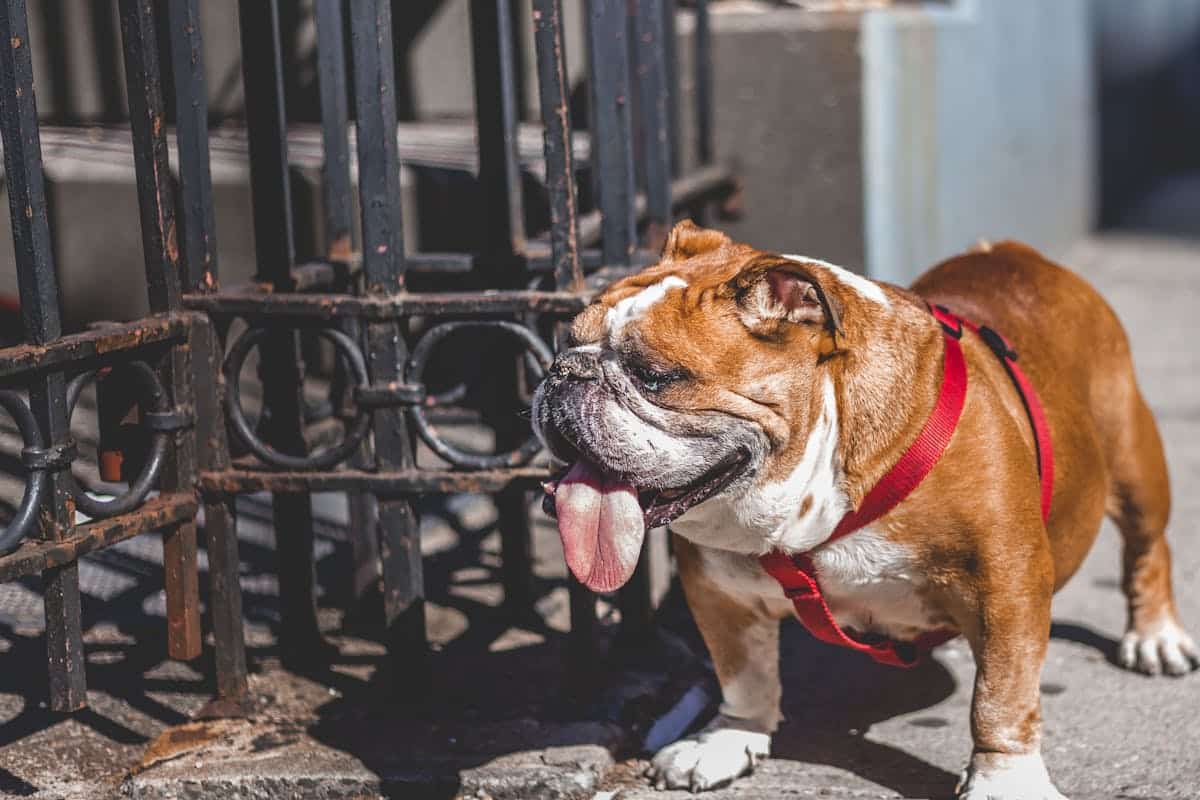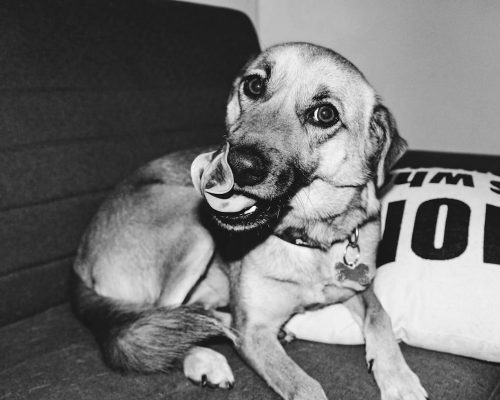Bulldogs, with their unmistakable wrinkled faces, stocky frames, and endearing personalities, are one of the most beloved dog breeds worldwide.
Originally bred for bull-baiting, these dogs have transitioned into affectionate companions renowned for their loyalty and charm.
Whether you are a prospective owner or a long-time bulldog enthusiast, understanding their temperament, grooming, and care is crucial to ensuring they thrive. In this comprehensive guide, we will explore everything you need to know about the bulldog breed.
Table of Contents
ToggleOverview of the Bulldog Breed
The bulldog’s ancestry dates back to 13th-century England, where they were initially bred for bull-baiting, a brutal sport that required tenacity and strength.
After the sport was outlawed in 1835, breeders focused on refining the bulldog’s temperament, creating the gentle, affectionate companion we know today.
Bulldogs are medium-sized dogs with muscular builds, low-slung bodies, and broad shoulders. They have a short muzzle, a wide face marked with wrinkles, and a distinctive underbite. Their expressive eyes and droopy jowls give them a unique, unmistakable appearance.
Understanding Bulldog Temperament
Despite their tough exterior, bulldogs are gentle and affectionate dogs. They form strong bonds with their families and love spending time lounging around or snuggling on the couch. Their calm demeanor makes them excellent companions for children and seniors alike.
Loyalty and Companionship
Bulldogs are fiercely loyal and protective of their loved ones. They thrive in environments where they receive attention and companionship. Leaving a bulldog alone for extended periods can result in separation anxiety, as they deeply crave human interaction.
Playful Yet Calm
While bulldogs enjoy playtime, they are far from hyperactive. They prefer short bursts of energy followed by extended naps, earning them the reputation of being couch potatoes. This makes them ideal pets for families who enjoy a laid-back lifestyle.
Compatibility With Other Pets
Bulldogs generally get along well with other pets, particularly when introduced at a young age. Their easygoing temperament reduces the likelihood of aggressive behavior, although proper socialization is essential.
Bulldog Grooming
Bulldogs have short, smooth coats that require minimal grooming. While they are not heavy shedders, weekly brushing helps to remove loose fur, distribute natural oils, and maintain a healthy coat.
Cleaning Facial Wrinkles
The bulldog’s iconic wrinkles are charming but require special attention. Dirt and moisture can accumulate in these folds, leading to infections. Cleaning their wrinkles daily with a damp cloth and ensuring they remain dry afterward is essential for preventing skin issues.
Nail Trimming
Overgrown nails can cause discomfort and difficulty walking. Bulldogs’ nails should be trimmed every 2-3 weeks. If the nails click on the floor, it’s time for a trim.
Dental Hygiene
Due to their brachycephalic (short-muzzled) faces, bulldogs are prone to dental issues. Regular teeth brushing, dental treats, and checkups are necessary to prevent tartar buildup and gum disease.
Bathing Frequency
Bulldogs do not require frequent baths unless they get particularly dirty. Bathing them every 4-6 weeks with a mild dog shampoo helps keep their coat clean and their skin healthy.
Ear Cleaning
Bulldogs have small, folded ears that can trap dirt and moisture, leading to infections. Cleaning their ears weekly with a veterinarian-approved solution helps prevent buildup and ear problems.
Health Concerns in Bulldogs
Common Health Issues
Bulldogs are prone to several breed-specific health problems, including:
- Brachycephalic Obstructive Airway Syndrome (BOAS): Due to their short snouts, bulldogs often experience breathing difficulties, especially in hot weather.
- Hip Dysplasia: This genetic condition affects the hip joint, causing pain and mobility issues.
- Skin Infections: Wrinkle infections and allergies are common.
- Cherry Eye: A condition where the gland in the third eyelid protrudes, requiring medical intervention.
Importance of Regular Vet Checkups
Routine veterinary visits are crucial for early detection and management of health issues. Annual wellness exams, vaccinations, and preventive care will help your bulldog stay healthy.
Managing Weight and Obesity
Bulldogs are prone to weight gain, which exacerbates their breathing issues and joint problems. Feeding them a balanced diet and monitoring their caloric intake is vital for maintaining an ideal weight.
Recognizing Warning Signs
Look out for symptoms like labored breathing, lethargy, excessive scratching, or limping. Prompt attention to these signs can prevent serious health complications.
Nutrition and Feeding Guidelines
Bulldogs thrive on high-quality dog food that meets their nutritional needs. A balanced diet should include protein, healthy fats, vitamins, and minerals.
Many bulldogs have food sensitivities. Common allergens include grains, chicken, and dairy. Switching to hypoallergenic food or a grain-free diet can help alleviate symptoms.
Bulldogs should be fed 2-3 small meals per day to prevent overeating and bloating. Portion control is critical to avoid obesity.
Always ensure your bulldog has access to fresh water. Staying hydrated is essential, particularly due to their breathing challenges.
Exercise and Activity Requirements
Bulldogs require moderate exercise to stay healthy. A daily 20-30 minute walk and light play sessions are sufficient to keep them active without overexertion.
Due to their breathing difficulties, bulldogs are sensitive to heat. Exercise them during cooler times of the day and avoid strenuous activities.
Interactive toys, puzzle feeders, and training exercises provide mental stimulation for bulldogs, keeping them engaged and reducing boredom.
Training and Socialization
Start training bulldogs as early as possible. They can be stubborn, but consistent, positive reinforcement methods work best.
Patience and routine are key to potty training a bulldog. Take them outside regularly and reward them for successful bathroom trips.
Expose your bulldog to different people, pets, and environments from a young age to ensure they grow up to be well-rounded, sociable dogs.
Choosing the Right Bulldog for Your Family
If you are buying a bulldog puppy, choose a reputable breeder who prioritizes health and temperament. Ask for health clearances and meet the puppy’s parents.
Many bulldogs are in need of loving homes. Adoption can be a rewarding experience, providing a second chance to a dog in need.
Conclusion
Bulldogs are loving, loyal, and charming companions that bring joy to any household. While they have unique needs due to their physical traits, proper grooming, nutrition, and care can help them live happy, fulfilling lives.
By understanding their temperament and prioritizing their health, you can ensure your bulldog thrives as a cherished family member.






